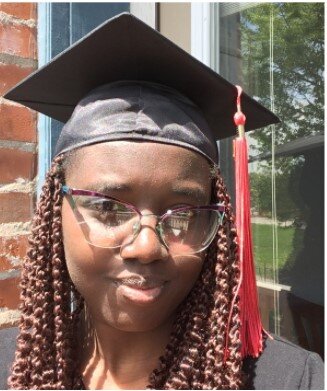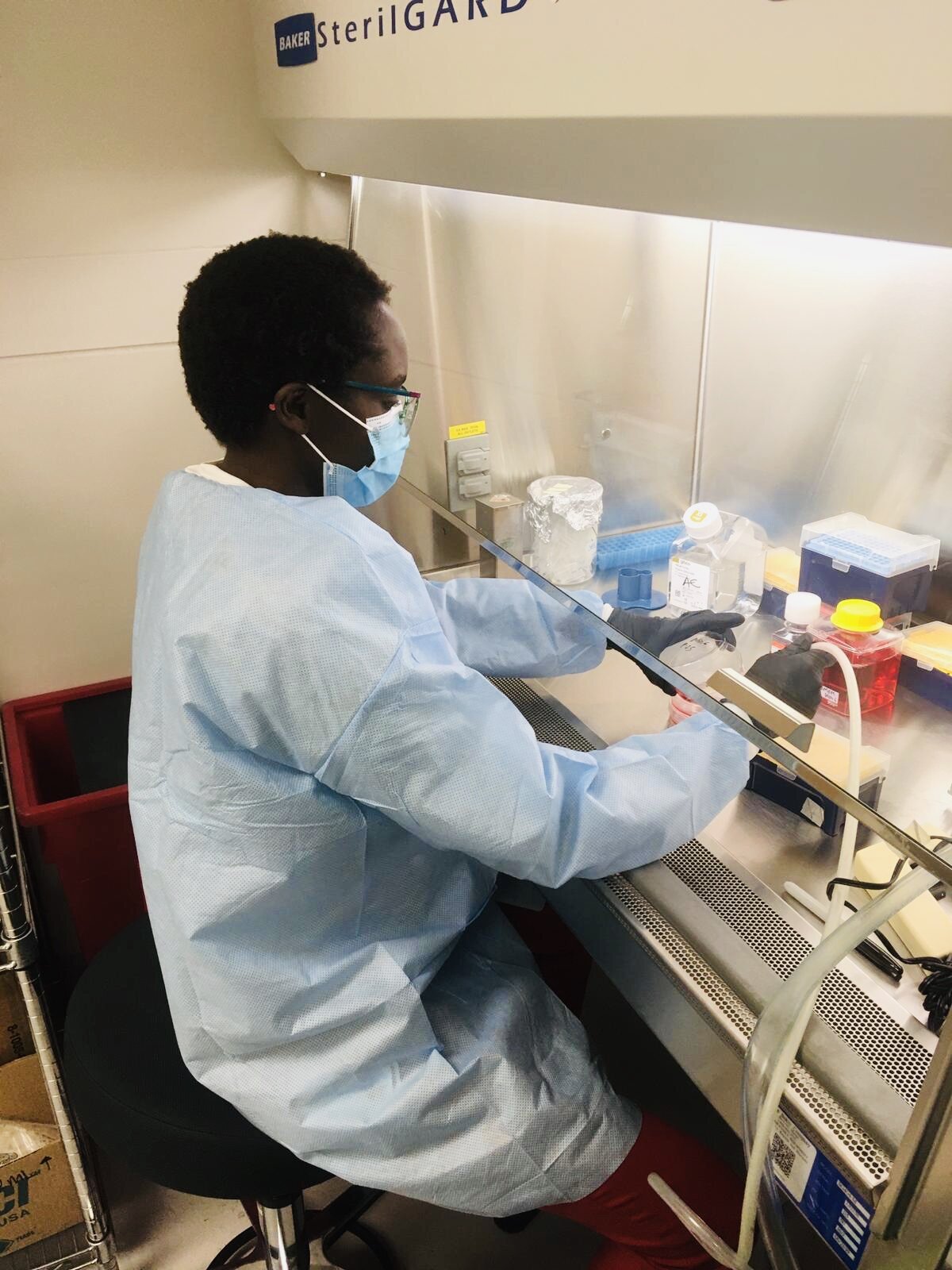Abigael Cheruiyot is a post-doctoral Fellow at Harvard’s Joslin Diabetes Center. She graduated from Colby College with a BA in Biology and Biochemistry in 2012 and received her PhD in Oncology from Washington University in St. Louis in 2020. Abigael has worked as a research assistant in several labs across the world, from Tanzania to Kenya to the United States, where she is currently located. Her work as a researcher revolves around improving macro health outcomes from a microcellular level.
“One of my goals is to increase the representation of Africans in science and to advocate for the recognition of African scientists.”
Abigael was born in Kitale but raised in Mokwo village, Elgeyo Marakwet county, Kenya. After graduating from high school with outstanding marks, Abigael was admitted into KenSAP’s Class of 2007 where she worked hard on her SAT scores and trained on her track and field skills until finally, she was admitted to Colby College, not only with a full financial aid package but also as a member of the Colby Mules’ Cross Country team. Abigael recalls her cross-country experience, which all KenSAP scholars are introduced to early on in the program, as one of the highlights of her college experience. Abigael also mentioned that she enjoyed spending time with her host family who introduced her to many other outdoor activities, including hiking, canoeing, skiing, and snow-shoeing. She also enjoyed interacting with people from all over the world and introducing people to Kenyan food and culture as a leader within the Colby African Society.
“After graduating from high school with outstanding marks, Abigael was admitted into KenSAP’s Class of 2007 where she worked hard on her SAT scores and trained on her track and field skills until finally, she was admitted to Colby College, not only with a full financial aid package but also as a member of the Colby Mules’ Cross Country team. ”
“ Abigael recalls her cross-country experience, which all KenSAP scholars are introduced to early on in the program, as one of the highlights of her college experience. ”
Entering Colby, Abigael had a passion for biology which she pursued wholeheartedly, finding herself working in labs across the world with a focus on cell biology. She did a winter internship in Tanzania where she shadowed Dr. Esther Kawira. There, she learned about the health challenges and healthcare needs in rural Tanzania, which she was able to see in most African countries including her own. She was also able to work with Dr. Margaret Mackinnon at KEMRI-Wellcome Trust at Kilifi, a town on the coast of Kenya. At KEMRI, her findings went beyond eye-opening scientific research. It was here that she discovered that most top labs in developing countries were run primarily by foreign nationals and funded by foreign non-profits, which inspired her to improve representation of Africans in science.
Upon graduation, Abigael worked as a research technician in Dr. Catherine Nutt’s lab at the Massachusetts General Hospital (MGH) where she studied the effect of a specific gene mutation on the formation of brain tumors. Her time at MGH sparked in her an interest in oncology, and once again, she pursued it by working on a Ph.D. in DNA and RNA surveillance in the lab of Dr. Zhongsheng You at Washington University in St. Louis. At the start of 2020, Abigael successfully defended her thesis at Washington University in St. Louis, making her the newest addition to the almost 10% of KenSAP alumni with PhD degrees. She is now at Harvard’s Joslin Diabetes Center as a postdoctoral Fellow in Dr. Jean Schaffer lab, where she continues to work towards understanding cellular biology to improve health outcomes in society.
Abigael in a lab at Harvard’s Joslin Diabetes Center
“ At the start of 2020, Abigael successfully defended her thesis at Washington University in St. Louis, making her the newest addition to the almost 10% of KenSAP alumni with PhD degrees.”
In the future, Abigael hopes to collaborate with scientists in Africa to overcome the significant challenges to doing science research on the continent. One of her goals is to increase the representation of Africans in the global science community and to advocate for the recognition of African scientists. “One of my dreams as a scientist is to have meaningful collaborations with scientists in Africa, whether I have a research lab on or outside the continent, because the biology of diseases affecting this region is still under-studied. However, there are still significant challenges to doing science in our continent, including a lack of resources from the governments, lack of manufacturers that supply key reagents to the laboratories, lack of skilled personnel, and the continued exploitation of the few scientists in the continent, where many of them do not get due credit for their work. Even here in the USA, I am still frustrated with the lack of representation of people from all backgrounds in science.”
Abigael attributes her success in science to her supportive parents who ensured the education of all their children. Despite her successes, she still admits that she has been a victim of impostor syndrome. “While a student in Kenya, I felt quite at home in school and more than capable in many subjects. However, going to college in the USA and throughout graduate school, I struggled with the feeling that I wasn’t good enough to belong and excel in my field of study.” She, however, encourages us to overcome this by always striving to put our best foot forward and reaching out for help when we begin to doubt our potential. “I fought the impostor feelings by demonstrating my capabilities through timely completion of experiments, thoughtful publications, and constantly applying to even the most competitive research fellowships, which I did receive. All these helped to improve my self-confidence. With this confidence, I began to feel more at home presenting my work, and conversing with other scientists in the field, which improved my sense of belonging, and enabled me to share my ideas and ask for help when I needed it.” Outside the lab, Abigael enjoys hiking, running, reading, cooking, wine-tasting, and sight-seeing.
Abby at a wine-tasting event




